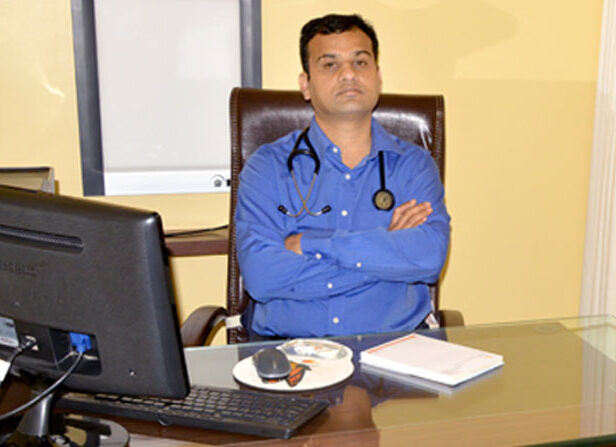Thyroid Treatment in Pune
Thyroid is a small gland, similar to a butterfly, situated in the lower part of the neck. The primary objective of this gland is to secrete hormones such as tri-iodothyronine, abbreviated as T3, and thyroxin, abbreviated as T4. These thyroid hormones provide energy to cells of the body and are one of the most important hormones to control the body’s metabolism. The most common thyroid problems include Hypothyroidism, Hyperthyroidsim.
Book An Appointment
What is Thyroid?
Every individual body part requires a specific level of these hormones to evenly regulate the total energy. Any change in these hormone levels negatively impacts different organs and their functions.
Thyroid disease is the onset of an imbalance in the production of thyroid hormones caused due to various reasons. The imbalance can occur in two ways which also defines the two types of thyroid disease.
Hyperthyroidism
If the thyroid gland produces an excess of T3 and T4 hormones, the organs associated with them work abnormally fast. Considering the example mentioned above, it may increase your heart rate or burn more calories, leading to unwanted weight loss.
Hypothyroidism
If the thyroid gland produces fewer T3 and T4 hormones than required, the associated body parts also slow down their functions. These reduced hormone levels can lead to a reduced heart rate and a slower metabolism which causes weight gain. This thyroid response is known as hypothyroidism
About Aditya Clinic
Aditya clinic and specialty diabetes centre is operational since 2009 at baner with aim to provide economical and ethical consultation to patient. Since then it has grown with blessing of approximately 9000 patients till today
We offer various services like physician consultaion, diabetes care, thyroid clinic etc.

About Our Consultant
- M.D. [medicine]
- Fellow in medicine- National university Hospital-Singapore.
- Fellowship in Diabetes [CMC-Vellore]
- Consultant physician and diabetes and thyroid specialist
Book An Appointment
How is Thyroid Treated?
There are several blood tests that are needed to diagnose distinct causes of thyroid disease. Imaging techniques may also be used to detect minor changes in the thyroid glands.
If you’re diagnosed with hyperthyroidism, your initial treatment course may include medications such as radioactive iodine, beta-blockers, and anti-thyroid drugs.
In hypothyroidism, you may be prescribed thyroid replacement medications like which are synthetic thyroid hormones that balance the hormone levels in your body.
In severe cases where the thyroid nodules become enlarged or develop into thyroid cancer, you may have to under thyroid surgery in Pune to partially or entirely remove the affected gland tissues. This surgery, commonly known as thyroidectomy, can be performed in the following ways:
Traditional thyroidectomy: Here, a long incision is made along the neck, preferably in the skin creases where it would be less visible.
Endoscopic thyroidectomy: Here, the surgeon uses minimally invasive tools with a camera inserted through tiny hole incisions either around the neck or through the armpit.
Transoral thyroidectomy: Here, the surgeon makes an incision from inside the mouth to access the thyroid
